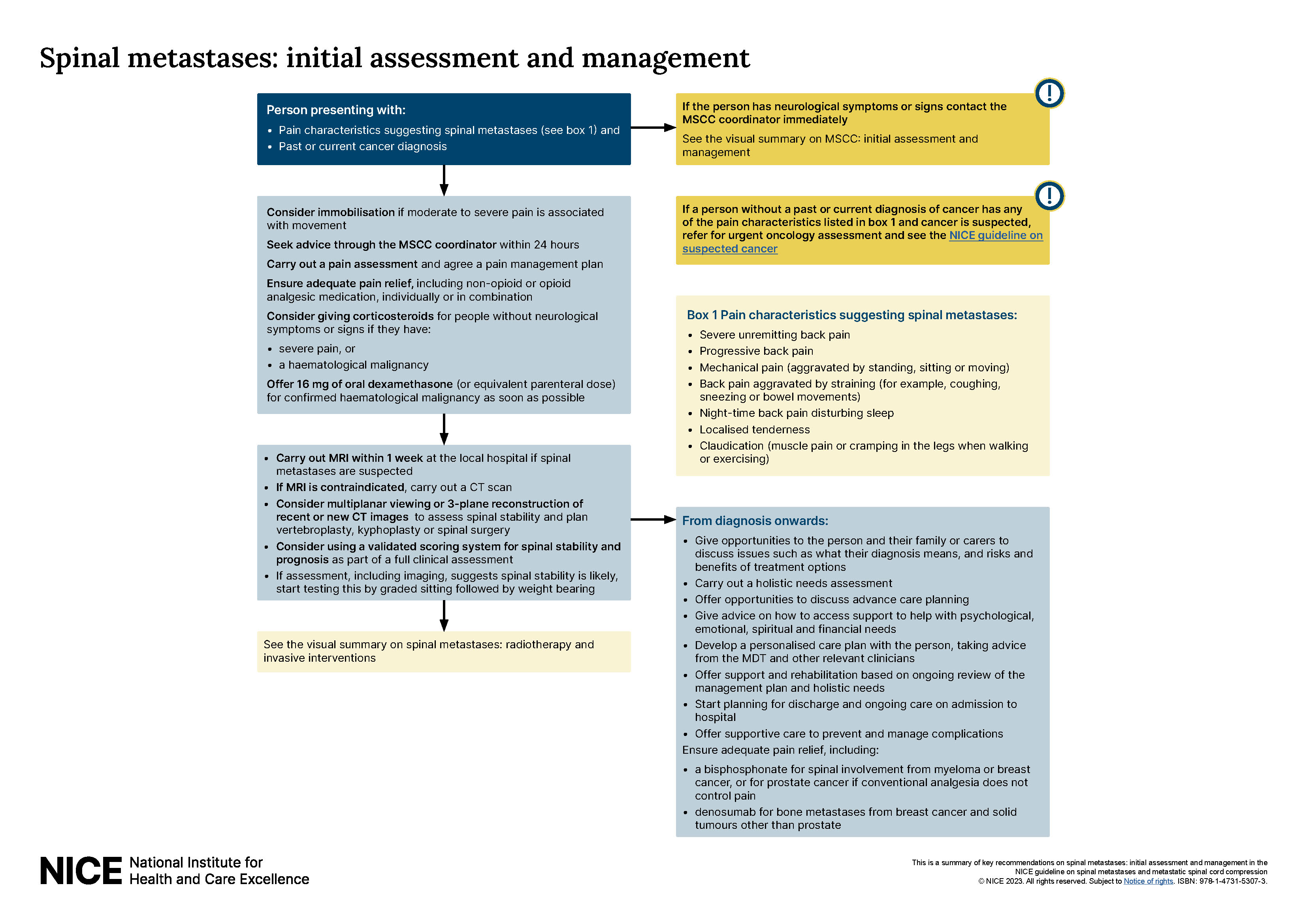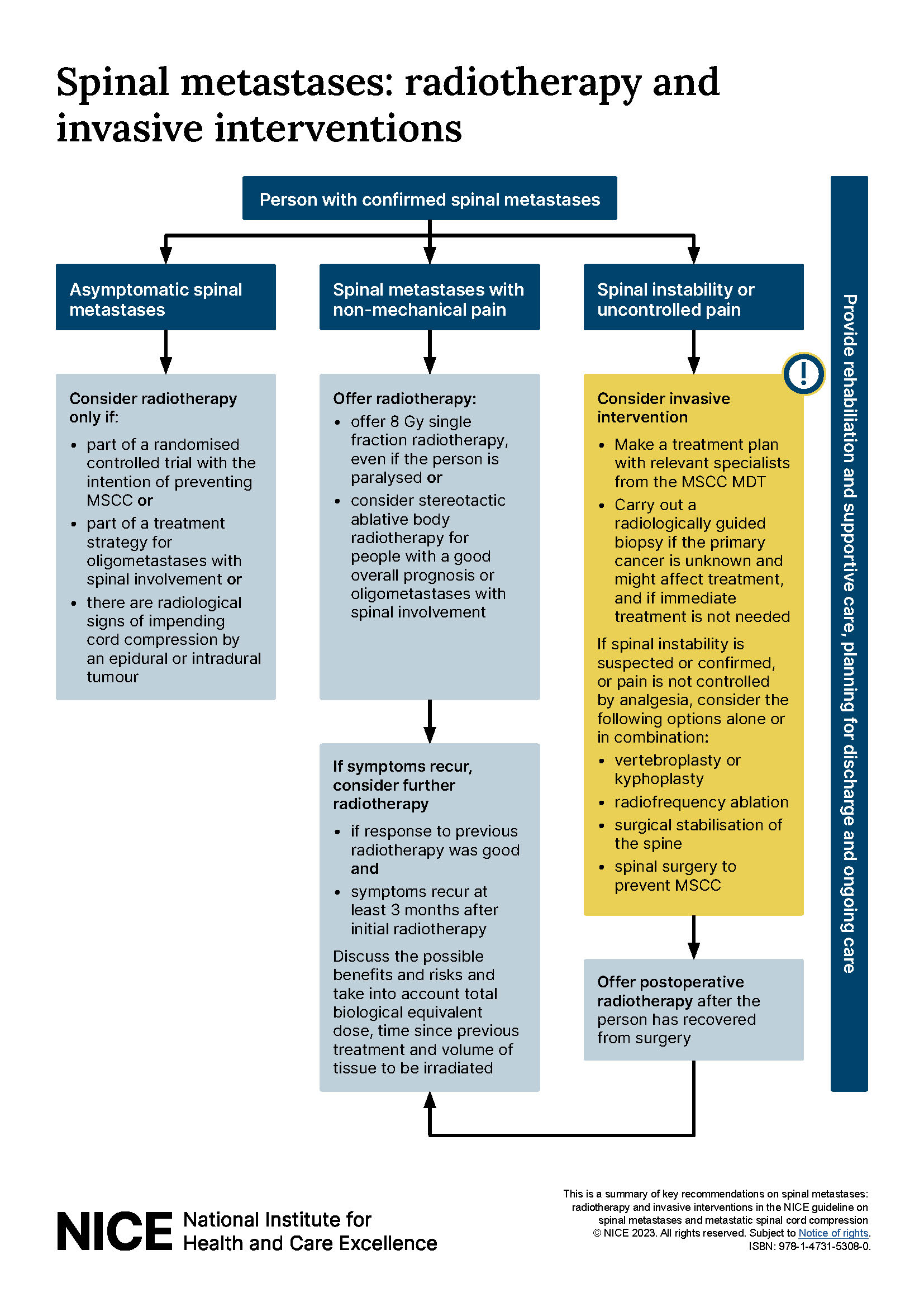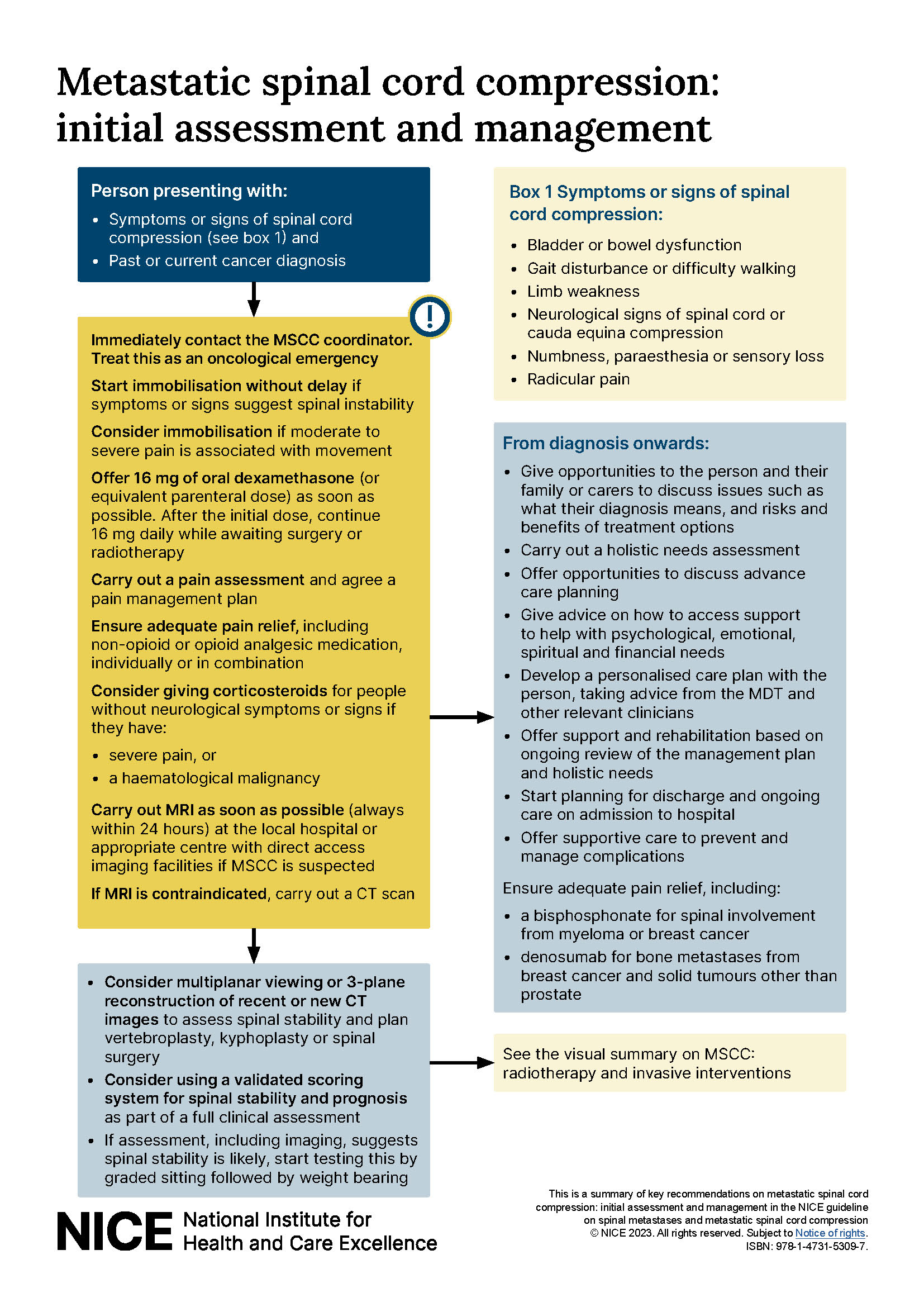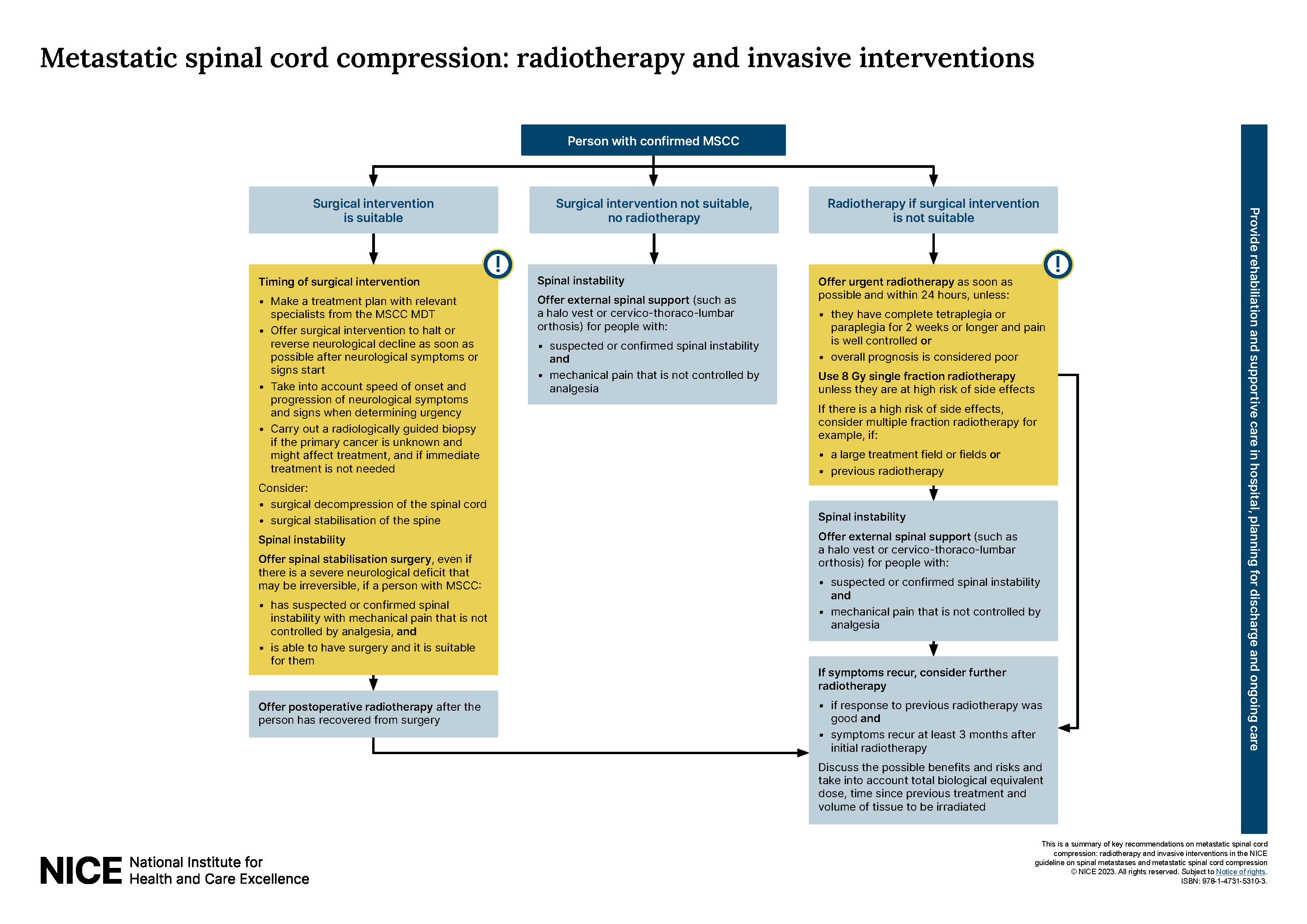Overview
This guideline covers recognition, referral, investigation and management of spinal metastases and metastatic spinal cord compression (MSCC). It is also relevant for direct malignant infiltration of the spine and associated cord compression. It aims to improve early diagnosis and treatment to prevent neurological injury and improve prognosis.
Last reviewed: 6 September 2023
This guideline updates and replaces NICE guideline CG75 (November 2008).
Next review: This guideline will be reviewed if there is new evidence that is likely to change the recommendations.
How we prioritise updating our guidance
Decisions about updating our guidance are made by NICE’s prioritisation board. For more information on the principles and process see NICE-wide topic prioritisation: the manual.
For information about individual topics, including any decisions affecting this guideline, see the summary table of prioritisation board decisions.
Recommendations
This guideline includes recommendations on:
- organising and delivering services
- information and support
- recognising spinal metastases or MSCC
- immobilisation and imaging investigations
- mobilisation and assessment of spinal stability
- pain management and corticosteroid therapy
- radiotherapy and invasive interventions
- rehabilitation and supportive care
See visual summaries on the recommendations for:
- spinal metastases: initial assessment and management
- spinal metastases: radiotherapy and invasive interventions
- metastatic spinal cord compression: initial assessment and management
- metastatic spinal cord compression: radiotherapy and invasive interventions
Who is it for?
- Healthcare professionals working in primary, secondary and tertiary care, palliative care and hospices
- Cancer alliances (or equivalent local partnerships)
- Commissioners of metastatic spinal cord preventative, diagnostic and treatment services (including integrated care boards and NHS England specialised commissioning)
- Voluntary sector organisations
- People with suspected or diagnosed spinal metastases, direct malignant infiltration of the spine or MSCC, their families and carers
Guideline development process
How we develop NICE guidelines
Your responsibility
The recommendations in this guideline represent the view of NICE, arrived at after careful consideration of the evidence available. When exercising their judgement, professionals and practitioners are expected to take this guideline fully into account, alongside the individual needs, preferences and values of their patients or the people using their service. It is not mandatory to apply the recommendations, and the guideline does not override the responsibility to make decisions appropriate to the circumstances of the individual, in consultation with them and their families and carers or guardian.
All problems (adverse events) related to a medicine or medical device used for treatment or in a procedure should be reported to the Medicines and Healthcare products Regulatory Agency using the Yellow Card Scheme.
Local commissioners and providers of healthcare have a responsibility to enable the guideline to be applied when individual professionals and people using services wish to use it. They should do so in the context of local and national priorities for funding and developing services, and in light of their duties to have due regard to the need to eliminate unlawful discrimination, to advance equality of opportunity and to reduce health inequalities. Nothing in this guideline should be interpreted in a way that would be inconsistent with complying with those duties.
Commissioners and providers have a responsibility to promote an environmentally sustainable health and care system and should assess and reduce the environmental impact of implementing NICE recommendations wherever possible.



